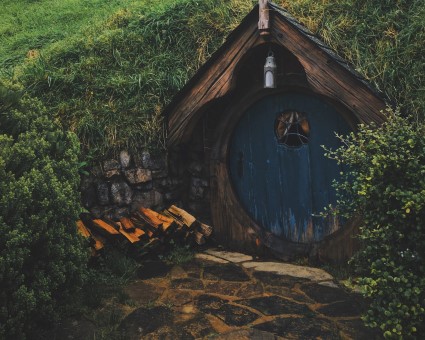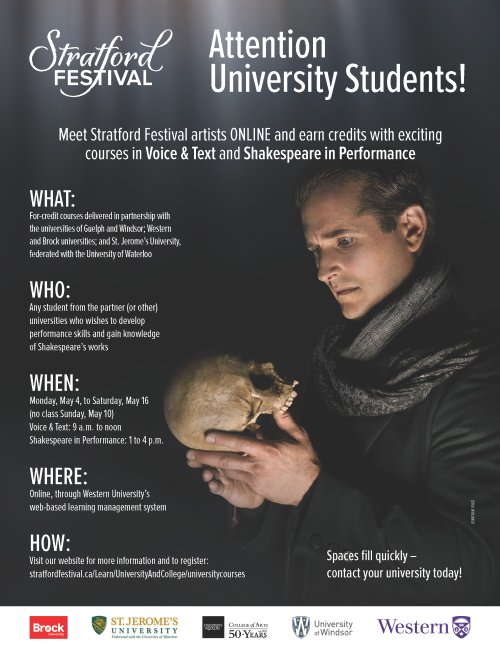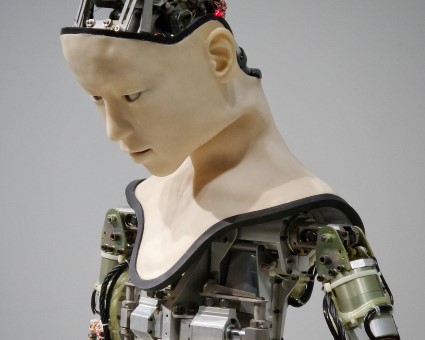Course Highlights
2020 Intersession and Summer Courses
 Arts and Humanities 1000E - Special Topics: “Critical Thinking and Writing for the Sciences”
Arts and Humanities 1000E - Special Topics: “Critical Thinking and Writing for the Sciences”
“Critical Thinking and Writing for the Sciences” offers students important critical reading, writing, and thinking skills for being successful at university and in the workplace. Writing in the sciences requires students to observe clearly, record their observations systematically, follow and write clear procedures, summarize the work of others clearly, report the work of other researchers accurately, and communicate their own actions in detailed reports. Thus, students are taught criteria behind language use, which motivates the criteria of good reasoning. The course concludes considering philosophical issues in science and its broader role in society.
In this course you will learn how to:
• analyse scientific journal articles
• write for non-scientific audiences
• document your activities in a lab setting
• write research reports on scientific topics
• document your sources correctly
• write in a style appropriate to scientific discourse
• edit and revise your work to conform to Standard Edited English.
 English 2033E - Children's Literature
English 2033E - Children's Literature
This course examines the development of literature for and about children from its roots in fairy tales, nursery rhymes, and nonsense literature. Animal stories, adventure tales, picture books, and domestic novels will be considered alongside visits to fantasy realms like Wonderland, Neverland, or the Land of Oz. A central focus will be the assumptions about children and childhood that shape these texts, all produced by adults based on what they believe children enjoy, want, or need.
 English 2071F - Speculative Fiction: Science Fiction
English 2071F - Speculative Fiction: Science Fiction
From Mary Shelley's Frankenstein to Ridley Scott's Blade Runner, a consideration of the history and development of science fiction. Will include science fiction themes such as the Other, new technologies, chaos theory, cybernetics, paradoxes of space/time travel, first contact, and alien worlds.
 English 2072F - Speculative Fiction: Fantasy
English 2072F - Speculative Fiction: Fantasy
A study of the purposes and historical origins of fantasy, and modern developments in fantasy: alternate worlds, horror or ghost stories, sword & sorcery, heroic fantasy. May include writers such as Tolkien, Simmons, Peake, Herbert, Beagle, Rowling.
3206G - Shakespeare in Performance
 This course provides the opportunity for both academic and experiential learning about four of Shakespeare's plays: Hamlet, Much Ado About Nothing, Richard III and All's Well That Ends Well. Students will participate in intensive classroom study and discussion; talk backs and Q&As with cast members after shows; and classroom visits from renowned actors in the Stratford Festival Company. Shakespeare in Performance will examine the Shakespeare plays being performed at the Stratford Festival this season in terms of stage history, performance choices, changing reception and social contexts. We will consider how Shakespeare, as Ben Jonson suggested, was "not of an age, but for all time" by looking at ways in which his plays continue to be relevant in our own era even as they are continually transformed and mediated through the lens of our understanding of theatre and the world.
This course provides the opportunity for both academic and experiential learning about four of Shakespeare's plays: Hamlet, Much Ado About Nothing, Richard III and All's Well That Ends Well. Students will participate in intensive classroom study and discussion; talk backs and Q&As with cast members after shows; and classroom visits from renowned actors in the Stratford Festival Company. Shakespeare in Performance will examine the Shakespeare plays being performed at the Stratford Festival this season in terms of stage history, performance choices, changing reception and social contexts. We will consider how Shakespeare, as Ben Jonson suggested, was "not of an age, but for all time" by looking at ways in which his plays continue to be relevant in our own era even as they are continually transformed and mediated through the lens of our understanding of theatre and the world.
THEATRE STUDIES 3206G RUNS CONCURRENTLY WITH THEATRE STUDIES 3207G.
3207G - Voice and Text in the Theatre
This intensive immersion will be led by members of the Festival’s coaching team and will focus on acting the language of Shakespeare. The work will be practical in its philosophy and its application, wholly designed to give the aspiring actor a handful of tools with which to explore, personalize and perform Shakespeare’s text. The work takes the form of two major sections, both integral to each other. First, the student will experiment with practical tools to decipher Shakespeare’s language and make it their own. Meanwhile, exercises in voice will encourage and enable the actor to develop those facets of their instrument that allow them to further access, experience and communicate Shakespeare’s language. Students come to the course from varying levels of acting training. Previous acting experience and/or experience with Shakespeare is not necessarily a path to success in the course. Process, Progress and a corresponding commitment to the work are valued overPerfection.
Taught by voice, text, and dialect coaches from Stratford Festival. THEATRE STUDIES 3207G RUNS CONCURRENTLY WITH THEATRE STUDIES 3206G. STUDENTS TAKING THEATRE STUDIES 3207G MUST ALSO BE REGISTERED IN THEATRE STUDIES 3206G.
French 2906B - Reading Literature in French: Modernity to Postmodernity
 Through lectures, workshops in small groups, personal readings and audio-visual documents, this course will allow the student to acquire a better knowledge of the authors and works in France of the 19 th and 20 th centuries. This course aims to familiarize the student with the main movements of literary and cultural history (since romanticism) and with the history of literary forms (especially the novel, dramatic text, narrative, storytelling and news). It also aims to introduce the student to the methods of "reading" (textual analysis) of literary texts in the program and to writing works reporting on this reading.
Through lectures, workshops in small groups, personal readings and audio-visual documents, this course will allow the student to acquire a better knowledge of the authors and works in France of the 19 th and 20 th centuries. This course aims to familiarize the student with the main movements of literary and cultural history (since romanticism) and with the history of literary forms (especially the novel, dramatic text, narrative, storytelling and news). It also aims to introduce the student to the methods of "reading" (textual analysis) of literary texts in the program and to writing works reporting on this reading.
Intercultural Communications 2200F - Not 'Lost in Translation'
 How does culture mold habits of thought? What is "lost in translation" between one culture and another? Explore cultural values, practices, symbols, rituals, heroes, and non-verbal and verbal communication. Examples and projects will be based on language and storytelling in literature, film, music, popular culture, food, fashion, and more.
How does culture mold habits of thought? What is "lost in translation" between one culture and another? Explore cultural values, practices, symbols, rituals, heroes, and non-verbal and verbal communication. Examples and projects will be based on language and storytelling in literature, film, music, popular culture, food, fashion, and more.
Philosophy 4210F: Survey of Philosophy of Language
 A survey of foundational and highly influential texts from 20th Century Analytic Philosophy of Language. Emphasis will be on twin topics of special interest to contemporary linguistic theorizing: 1) contrasting conceptions of linguistic meaning, including Frege-Russell-Davidson style truth-conditional approaches; Ordinary Language Philosophy’s use-oriented approaches; and the mentalist semantics familiar from Grice and generative grammar. 2) The contrast between semantics vs. pragmatics and attempts to trace a boundary between them. This latter section will conclude with a detailed case study on definite descriptions, indexicals and singular reference. Authors include: Austin, Davidson, Donnellan, Fodor, Frege, Grice, Kaplan, Kripke, Russell, Searle, Strawson and Wittgenstein. Cross-listed with Linguistics 9453L.
A survey of foundational and highly influential texts from 20th Century Analytic Philosophy of Language. Emphasis will be on twin topics of special interest to contemporary linguistic theorizing: 1) contrasting conceptions of linguistic meaning, including Frege-Russell-Davidson style truth-conditional approaches; Ordinary Language Philosophy’s use-oriented approaches; and the mentalist semantics familiar from Grice and generative grammar. 2) The contrast between semantics vs. pragmatics and attempts to trace a boundary between them. This latter section will conclude with a detailed case study on definite descriptions, indexicals and singular reference. Authors include: Austin, Davidson, Donnellan, Fodor, Frege, Grice, Kaplan, Kripke, Russell, Searle, Strawson and Wittgenstein. Cross-listed with Linguistics 9453L.
Women's Studies 2203F Future Sex: Sex and Science Fiction
 Beginning with cutting edge contemporary practices, from sex reassignment surgery to virtual reality, this course will look at the ways in which we imagine the future of gender and sexuality. The focus will be primarily on science fiction texts that provide interesting alternatives to present-day ideas about sex and sexuality.
Beginning with cutting edge contemporary practices, from sex reassignment surgery to virtual reality, this course will look at the ways in which we imagine the future of gender and sexuality. The focus will be primarily on science fiction texts that provide interesting alternatives to present-day ideas about sex and sexuality.
The course will start by looking at a variety of cutting edge contemporary and near future issues, including genetic engineering (such as the detection of a "gay gene" and the abortion of "gay fetuses" or other controls over human sexuality), the use of biological modification and high tech prosthetics for sex, reproductive technology, cybertechnologies (especially virtual reality), and the somewhat further future potentials of space flight, terraforming, human modification for colonization of other planets, etc. It will include a number of important science fiction texts, as well as investigations into the societal and personal effects on sexual desire, identity and embodiment.






